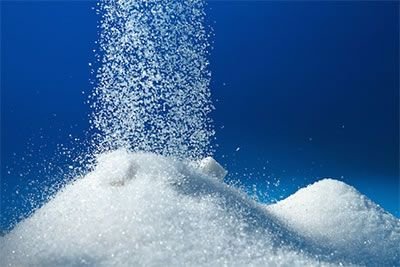
Introduction to Aspartame
What is Aspartame?
Aspartame is an artificial sweetener that is used as a sugar substitute in many food and beverage products. It is commonly found in diet sodas, sugar-free gum, and various low-calorie or sugar-free foods. Aspartame is known for its intense sweetness, approximately 200 times at times sweeter than sugar, which allows for a much lower quantity to be used to achieve the desired level of sweetness in products.
History of Aspartame
Discovered in 1965 by a chemist, aspartame gained approval for use in dry goods in 1981 and for carbonated beverages in 1983. It quickly became popular as a sugar substitute due to its low-calorie content. Although there have been controversies and health concerns surrounding aspartame, it continues to be widely used in the food industry as a sweetening agent for various products.
Health Effects of Aspartame
When considering the health effects of aspartame, it is essential to delve into how this artificial sweetener can impact weight management and metabolic health.
Impact on Weight Management
Aspartame, due to its intense sweetness, allows for the creation of low-calorie or sugar-free food and beverage products. This can be beneficial for individuals looking to manage their weight by reducing overall calorie intake. By choosing products sweetened with aspartame instead of sugar, one can enjoy a sweet taste without the additional calories, potentially aiding in weight control efforts.
Aspartame and Metabolic Health
Studies have examined the relationship between aspartame consumption and metabolic health. While some concerns have been raised regarding the effects of aspartame on metabolism, current research suggests that moderate consumption of aspartame is safe for the general population. Aspartame can be a valuable tool for individuals, including those with diabetes, looking to reduce their sugar intake while still enjoying sweet-tasting foods and beverages.
Aspartame in Food and Beverages
When it comes to the presence of aspartame in food and beverages, it is crucial to recognize its widespread usage and the regulations governing its use in the market.
Common Products Containing Aspartame
Aspartame is commonly found in a variety of food and beverage products labeled as “sugar-free,” “diet,” or “low-calorie.” These can range from soft drinks, chewing gums, and desserts to various processed foods aimed at providing a reduced-calorie option for consumers conscious of their sugar intake.
Regulations on Aspartame Use in Foods
The use of aspartame in food and beverages is strictly regulated by food authorities such as the FDA and EFSA to ensure its safety for consumption. These regulations set acceptable daily intake levels and require proper labeling of products containing aspartame so that consumers can make informed choices based on their dietary preferences and health concerns. Compliance with these regulations helps maintain the safety and integrity of products containing aspartame in the market.
Controversies Surrounding Aspartame
Safety Concerns
In recent years, aspartame has become a topic of debate due to safety concerns associated with its consumption. Some studies suggest a possible link between aspartame and health issues like headaches, dizziness, and even cancer. However, regulatory bodies like the FDA and EFSA maintain that aspartame is safe for use within established limits. Research into the safety of aspartame is ongoing, but currently, the consensus is that it is safe for the general population.
Myths vs. Facts about Aspartame
Various myths surrounding aspartame have circulated, leading to misconceptions about its effects on health. One common myth is that aspartame causes weight gain, but scientific evidence does not support this claim. The reality is that aspartame is a low-calorie sweetener that can be part of a balanced diet. By distinguishing between myths and facts, consumers can make informed decisions about including aspartame in their food and beverage choices. It is essential to rely on credible sources and scientific evidence when evaluating the impact of aspartame on health.
Also Read: The Benefits of Using Aspartame as a Sweetener in Your Diet
Aspartame and Diabetes
Aspartame’s Effect on Blood Sugar Levels | Aspartame Consumption for Diabetic Individuals
Aspartame, a widely used artificial sweetener, has sparked debates about its safety in recent years. Concerns about its impact on health, including links to headaches and potential cancer risks, have been raised. Regulatory bodies like the FDA and EFSA maintain that aspartame is safe within specified limits, although ongoing research continues to evaluate its safety. While myths surrounding aspartame, such as claims of weight gain, persist, scientific evidence refutes these notions. Aspartame is a low-calorie sweetener that can be part of a balanced diet.Regarding diabetes, studies have shown that aspartame does not significantly affect blood sugar levels in the general population. This makes it a viable option for individuals monitoring their glucose intake. For diabetic individuals, moderate consumption of aspartame can be part of their dietary plan, provided they consider their overall sugar and carbohydrate intake. It is crucial for consumers to distinguish between fact and fiction when it comes to the effects of aspartame on health, relying on credible sources and scientific research for accurate information.
